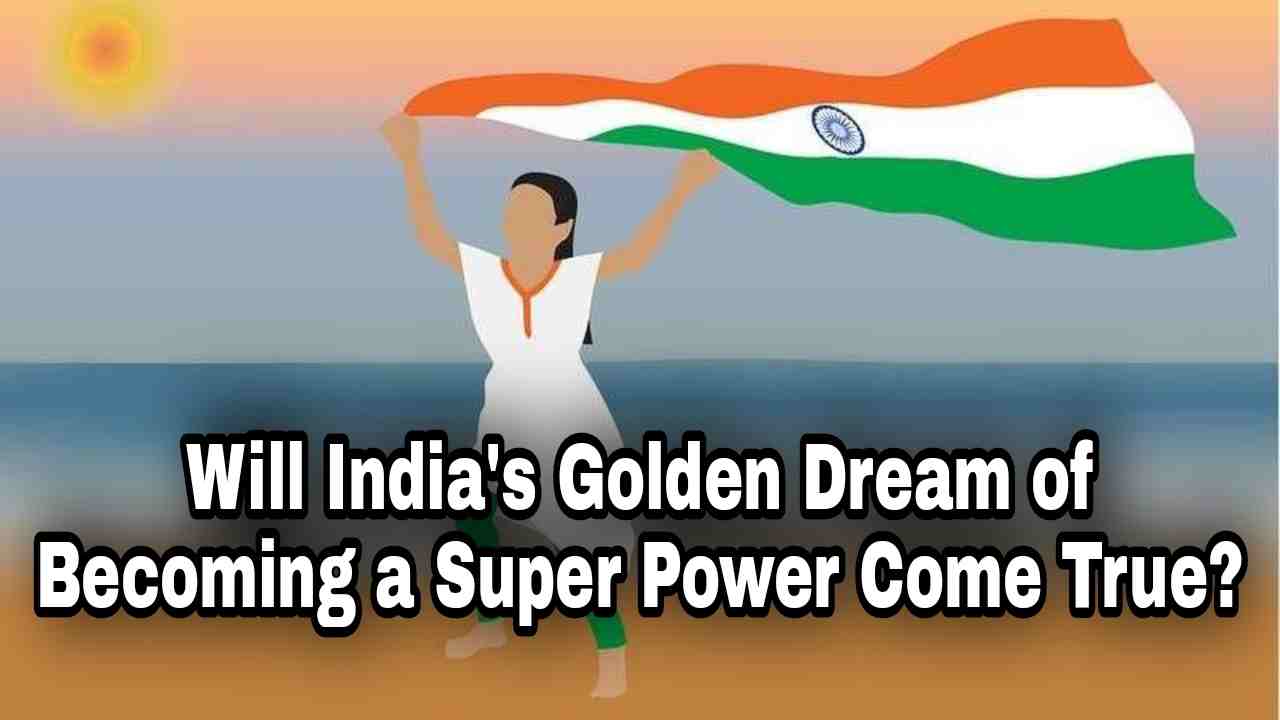India's Dream of a Super Power:
Pandit Jawaharlal Nehru said that India would inevitably become a great world power and there would be two major pillars of this great world power. The power of one developed economy and control over the other Indian Ocean. Remember that 70% of the world's maritime trade passes through the Indian Ocean. But the idea of a united India is an even older and more expansionist mindset. The map of united India starts from Afghanistan and goes to Burma. Although, in the eyes of serious observers, a united India is no more than a divisive concept, the term is still popular among India's right-wing leadership. Recently, RSS leader Mohan Bhagwat called for a united India and called for an end to the 1947 partition.
India has made significant economic progress in the last thirty years. Its international stature has also increased. The membership of the Nuclear Suppliers Group and its friendship with the United States are indicative of India's growing global influence, but India has not yet become a permanent member of the Security Council, despite its best efforts. Nobel Prize-winning intellectual V.S. Naipaul called India the inheritor of a wounded civilization and clearly referred to India's millennial slavery.
Intellectuals in the early 21st century think:
At the beginning of the 21st century, most commentators have said that the present century belongs to Asia and that China and India will take Asia forward together and then China has gone far ahead of India in economic development. At the turn of the century, China's gross annual product was twice that of India, and today it is five times. China's defense budget is more than three times that of India. It is now being said that the 21st century will be the century of Asia but this honor will be due to China. Until a few years ago, it was said that after the fall of the United States as a unique superpower, there would be multiple axes of power in the world, including the United States, China, India, Russia and Brazil. It is now being said that the world will again be bipolar with two superpowers, the United States and China. Compared to China, India today looks short.
In the 1962 war, India was defeated by China. Pandit Nehru could not bear this trauma and died the following year. The long border between India and China is disputed in many places. In 2019, an Indian leader stated that we would relinquish the disputed territory of Aqsa Chen from China and then everyone knows what happened to the Indian troops in the battle of Gulan. Since then, no Indian leader has named Aqsa Chen. Similarly, before the Balakot adventure, India had repeatedly objected to C-Pack saying that the project was starting from Gilgit-Baltistan which, according to India, was a part of it, but now, after the embarrassing slander, India's It's over. India has certainly realized that it has limitations in its power and with this limited military strength it cannot compete with China and Pakistan at the same time. The US also explained to India that it was not in its interest to open two fronts. India understood the situation and a ceasefire was reached on the Line of Control in Kashmir.
India's Relations with Neighboring Countries:
To be a great power, India must have good relations with its neighbors. After winning the 2014 elections, Prime Minister Modi invited all SAARC heads of state to his swearing-in ceremony. Prime Minister Nawaz Sharif also went to New Delhi for the function. The BJP's foreign policy slogan was "First Neighbors". It was a great start. If India has good relations with all its neighbors especially Pakistan then it will benefit not only the two countries but the whole region. There will be less stress. Tourism and trade will flourish. Prosperity will come to the whole region.
But unfortunately this did not happen. Modi soon launched a policy of hegemony. Pakistan was told to abandon the C-Pack project. Attempted an attack on Balakot in 2019 in violation of our airspace. Using the territory of neighboring countries to cause bloodshed in Pakistan. As a result, tensions rose in Pak-India relations, and hatred began to grow. Nepal's parliament passed a new map, sparking a border dispute. Nepal's trade blocked. Commodity prices skyrocketed there. In such a situation, China helped Nepal. Established ground connectivity by building new roads. Nepal, which was once very close to India, has now become a friend of China.
India played a key role in the creation of Bangladesh and that is why Bangladesh became India's armpit child. Bangladesh benefited from a reduction in its defense spending and was able to focus on economic growth. But in 2019, India passed the Citizenship Bill and launched the National Register. Register your Indian citizenship so that those who do not have documents can return to their home countries. Millions of Bangladeshis have been living in Assam for many years for work. Recently, the Prime Minister of Bangladesh Sheikh Hasina Wajid had stated that anti-Muslim activities in India were giving rise to anti-Hindu attitudes in Bangladesh. In recent times, relations between the two countries have been strained. Sri Lanka and Maldives used to be very close to India but now the situation is different.China's influence is growing in both countries. China's belt and road projects are showing their impact.
Distinctive features of India:
Every powerful country also has a soft power. India's soft power was democracy and secularism. Until a few years ago, it was said that religion had lost its significance in India. Muslims, Christians, Sikhs and Hindus are all equal. Bollywood movies and cricket made India popular all over the world but the Hindutva policy of Modi government has made India's face very beautiful.
If you ask me which countries are closest to India today, I would say 'United States, Israel, France and Bhutan' and these include only one neighboring country. The leadership understands that trade relations with China are enduring.
The source of India's growing influence abroad is overseas Indians who hold important positions in the United States, Canada and the United Kingdom. Recently, the head of the popular social media channel Twitter has resigned and has been replaced by an Indian Mr. Agarwal. I am also acutely aware that India has surpassed Pakistan in education and economic development.
Summary/Conclusion:
Most Indians say that our country will be a superpower after two or three decades but this will be possible only if the minorities are happy and the relations with the neighbors are better.








0 Comments